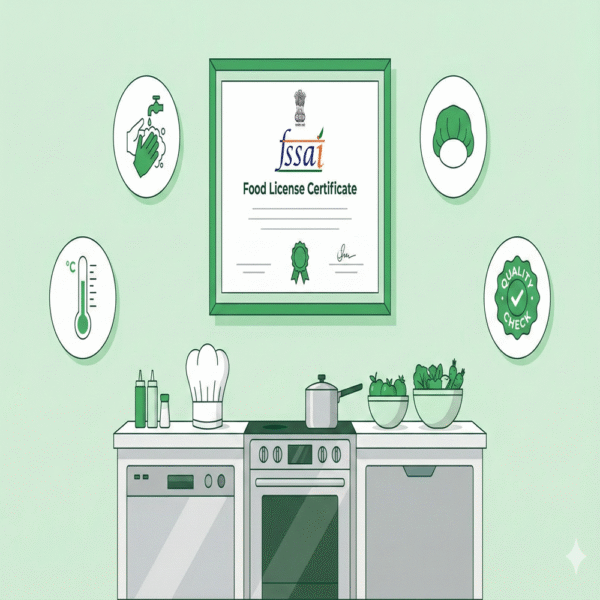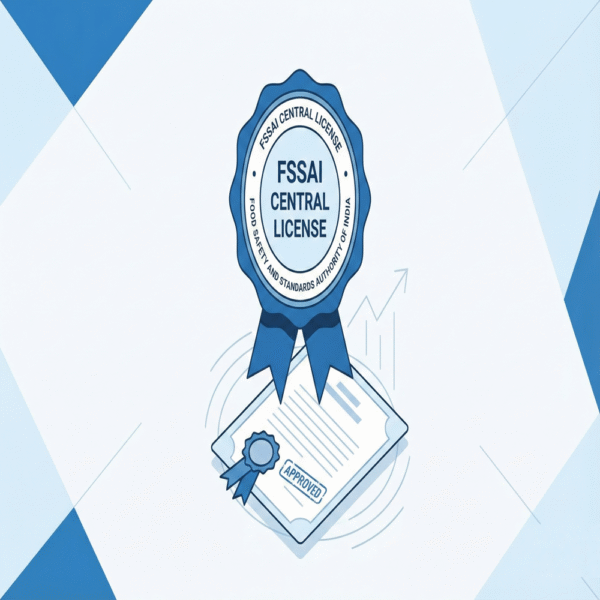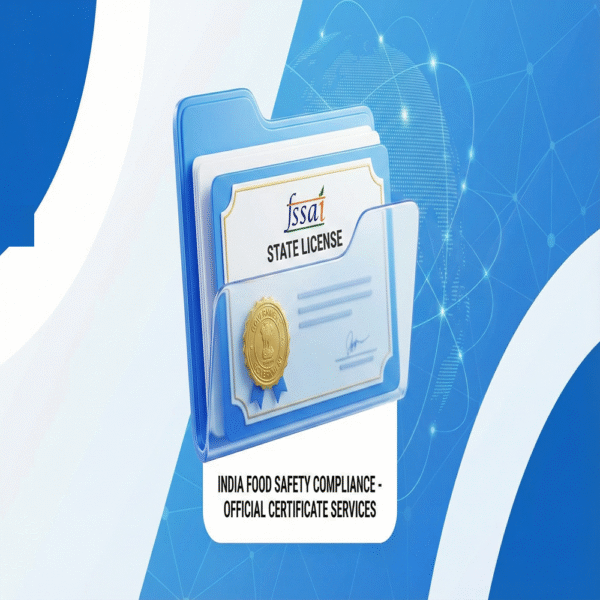1. Introduction
What is a Rice Mill?
A rice mill is a facility that processes raw paddy (unmilled rice) into polished, edible rice — such as Basmati, White Rice, Brown Rice, or Parboiled Rice.
The process includes:
- Cleaning
- De-husking
- Polishing
- Grading
- Packaging
Rice mills are vital to India’s food security and agro-industry — especially in states like Punjab, Haryana, Andhra Pradesh, Tamil Nadu, and West Bengal.
Why Is FSSAI License Mandatory for Rice Mills?
If you own or operate a rice mill in India, you must obtain an FSSAI license — not just for legal compliance, but also for business credibility, market access, and consumer trust.
Under the Food Safety and Standards Act, 2006, all food businesses involved in manufacturing, processing, packaging, storing, or selling food must be licensed by the Food Safety and Standards Authority of India (FSSAI).
Even though rice is a staple food, processing it makes it a “food product” under FSSAI rules — so licensing is required.
FSSAI Basic Registration – Apply Online
Apply for FSSAI Basic Registration online for food businesses with annual turnover up to ₹12 lakh. Fast approval, expert documentation, and hassle-free process.
Who Needs This Guide?
This guide is perfect for:
- Rice mill owners & operators
- Agri-business entrepreneurs
- Small and medium enterprises (SMEs) in food processing
- Startups launching branded rice products
- Importers/exporters of processed rice
- Consultants advising food businesses on compliance
Whether your mill handles 500 kg/day or 50 tons/day, this guide will help you get compliant — fast, easy, and stress-free.
2. What is FSSAI License for Rice Mills?
Definition
An FSSAI License for Rice Mills is a legal permit issued by FSSAI that allows a rice processing unit to manufacture, package, store, and sell rice and related products.
It ensures that:
- The rice is safe for human consumption
- Processing practices meet hygiene and safety standards
- Labeling is truthful and accurate
- No harmful contaminants (like pesticides, heavy metals, aflatoxins) are present
This license is not optional — it’s a legal requirement for any rice mill operating in India.
Key Features of FSSAI License for Rice Mills
| Feature | Explanation |
|---|---|
| Applicable to all rice processors | Whether small-scale or large-scale |
| Covers all rice types | White, brown, parboiled, basmati, aromatic, etc. |
| Includes packaging & storage | If you pack or store rice after milling |
| Valid for 1–5 years | Depending on license type |
| Renewable | Apply before expiry |
📌 Even if you only clean and de-husk paddy — you still need a license.
FSSAI Central License Registration – Apply Online
Get your FSSAI Central License approved fast and hassle-free. Expert filing, compliance support, and documentation handled end-to-end.
Types of FSSAI Licenses for Rice Mills
There are three main types based on annual turnover and scale:
| License Type | Annual Turnover | Processing Capacity | Validity |
|---|---|---|---|
| FSSAI Registration (Basic) | Up to ₹12 lakh | < 100 kg/day | 1 year |
| State FSSAI License | ₹12 lakh – ₹20 crore | 100 kg/day – 5 tonnes/day | 3 years |
| Central FSSAI License | Above ₹20 crore | > 5 tonnes/day | 5 years |
🔍 Example: A rice mill processing 3 tonnes/day needs a Central FSSAI License.
FSSAI State License Registration – Fast, Hassle-Free Food Business License
Get your FSSAI State License for food businesses quickly and compliantly. Expert documentation, filing & end-to-end support included.
3. Applicability & Scope
When Is an FSSAI License Required?
You must apply if your rice mill:
✅ Processes raw paddy into edible rice
✅ Packages rice for sale (even in bulk)
✅ Stores milled rice for more than 7 days
✅ Sells directly to retailers, wholesalers, or e-commerce platforms
✅ Imports or exports rice
Even home-based rice mills with daily capacity above 100 kg require registration.
⚠️ No license = Illegal operation → risk of seizure, fines, shutdown.
Exemptions (Limited)
Some exceptions exist:
- Farmers selling unprocessed paddy (not milled) — no license needed.
- Small units with < 100 kg/day capacity — can apply for FSSAI Basic Registration.
- Self-consumption only — if no sale or distribution.
But if you sell even one bag, you need a license.
Does It Apply to Exporters?
Yes — exporters of milled rice must have FSSAI Central License.
They also need:
- FSSAI export certificate
- NABL lab reports
- Compliance with international standards (e.g., Codex Alimentarius)
🔗 FSSAI approval is often required for customs clearance.
4. Benefits of FSSAI License for Rice Mills
Getting licensed isn’t just about following rules — it brings real business advantages.
1. Legal Compliance & Business Protection
✅ Avoid fines up to ₹10 lakh
✅ Prevent raids, seizures, or closure
✅ Operate without fear of legal action
2. Market Access & Sales Growth
With FSSAI license, you can:
- Sell through Amazon, Flipkart, BigBasket, JioMart
- Supply to retail chains (D-Mart, Reliance Fresh, Spencer’s)
- Enter government tenders (school meals, army supplies, hospitals)
- Get listed on e-governance portals
🎯 Many buyers require FSSAI certification before listing.
3. Consumer Trust & Brand Credibility
Customers trust brands with official approvals.
✅ “FSSAI Approved” on packaging = higher purchase intent
✅ Reduces complaints and returns
✅ Builds long-term loyalty
💬 “I only buy rice from FSSAI-certified mills” — common feedback from health-conscious consumers.
4. Easier Financing & Investment
Investors and banks prefer compliant businesses.
✅ Increases chances of loan approval
✅ Attracts angel investors & VCs
✅ Supports CSR partnerships
💼 Example: A rice mill with FSSAI license raised ₹8 crore in funding — compared to ₹2 crore without.
5. Export Opportunities
FSSAI license is recognized globally.
✅ Helps export to UAE, Singapore, Nepal, Bhutan, Bangladesh, Middle East
✅ Supports branding as “India-made, FSSAI-certified”
5. Documents Required for FSSAI License
To apply, you’ll need the following documents:
1. Application Form (Form A)
- Available on FSSAI portal
- Must be filled accurately
- Include business name, address, contact, product details
🔗 Download: https://foodlicensing.fssai.gov.in
2. Certificate of Incorporation
For:
- Private/Public Limited Company → PAN + MOA/AOA
- LLP → LLP Incorporation Certificate
- Proprietorship → Aadhaar, PAN, Shop Act License
- Partnership Firm → Partnership Deed + GSTIN
3. FSSAI Registration (if applicable)
If you already have a basic registration, mention it.
4. Proof of Establishment Address
Any one of:
- Electricity bill (not older than 2 months)
- Water bill
- Rent agreement + NOC from landlord
- Municipal Khata copy
- Property tax receipt
5. Layout Plan of the Rice Mill
Must include:
- Area breakdown (cleaning, husking, polishing, grading, storage)
- Equipment list
- Flow of materials
- Waste disposal area
✏️ Can be hand-drawn or digital.
6. List of Equipment Used
Include:
- Paddy cleaner
- Husker machine
- Polisher
- Grader
- Sieve
- Conveyor belts
- Storage silos
- Packaging machine
7. Lab Test Reports (Critical!)
Conducted by NABL-accredited labs.
Reports required:
- Microbial analysis (total plate count, coliforms)
- Heavy metal testing (lead, arsenic, cadmium)
- Pesticide residue (if paddy is from non-organic farms)
- Aflatoxin test (especially for stored rice)
- Moisture content
- Foreign matter detection
📌 Lab reports must be within 6 months of application.
8. Food Safety Management System (FSMS) Plan
Optional but recommended.
Includes:
- HACCP plan (Hazard Analysis Critical Control Point)
- SOPs (Standard Operating Procedures)
- Record-keeping system
- Training schedule for staff
✅ Helps during inspections.
9. Declaration of Non-Medicinal Intent
Even if your rice has health claims (e.g., “low glycemic”), you must declare:
“This product is not intended to diagnose, treat, cure, or prevent any disease.”
10. Additional Documents (If Applicable)
- Trademark registration
- Patent certificate (for unique processes)
- NOC from local authorities
- Environmental Clearance (for large mills)
✅ Keep all documents scanned and ready.
6. Step-by-Step Process of FSSAI License Application
The entire process takes 15–30 days — depending on completeness.
Step 1: Register on FSSAI Portal
Go to:https://foscos.fssai.gov.in/
Click “New User Registration” → Fill in business details → Create login.
Step 2: Select “Rice Mill” Category
After login:
- Go to “Application”
- Choose “Manufacturing” → Select “Rice Mill” from the list
- Pick your state and license type (Central/State/Basic)
Step 3: Fill Out Form A
Complete all sections:
- Business name, address, contact
- Product name (e.g., “Basmati Rice,” “White Rice”)
- Daily processing capacity
- Ingredients (raw paddy only)
- Packaging details (bags, labels)
- Upload documents:
- Layout plan
- Equipment list
- Lab reports
- Address proof
- Incorporation certificate
⚠️ Double-check spelling, numbers, and claims.
Step 4: Pay Application Fee
- ₹100 for Basic Registration (1 year)
- ₹2,000 for State License (3 years)
- ₹7,500 for Central License (5 years)
Payment via net banking, UPI, or credit card.
💰 No hidden charges.
Step 5: FSSAI Review & Verification
Within 7–10 working days, FSSAI reviews your application.
They may:
- Request clarifications
- Ask for additional lab reports
- Contact your lab for verification
Respond within 3–5 days.
Step 6: Field Inspection (If Required)
FSSAI may send an inspector to verify:
- Manufacturing setup
- Hygiene practices
- Storage conditions
- Record-keeping
Be prepared with:
- Production logs
- Quality control records
- Employee training certificates
- Pest control reports
📌 Most inspections take 1 day.
Step 7: Approval & Issuance of License
If everything is correct:
- You’ll receive FSSAI License Number
- Valid for 1–5 years
- Can be renewed before expiry
📄 Certificate includes:
- License number
- Business name
- Address
- Validity period
- FSSAI logo
Step 8: Update Labeling & Start Selling
Now you can:
- Print labels with FSSAI logo and license number
- Launch on e-commerce sites
- Distribute to retailers
- Advertise legally
✅ Never use false claims like “cures diabetes” — even in ads.
✅ Apply for FSSAI License for Rice Mill Now → Click Here
7. Post-License Compliance
Approval isn’t the end — you must stay compliant for the full validity period.
1. Annual Return Filing
File Annual Return on FSSAI portal by March 31st every year.
Includes:
- Total production (in kg/tonnes)
- Sales volume
- New packaging designs
- Lab tests conducted
2. Maintain Records
Keep copies of:
- Lab reports (keep for 5 years)
- Production logs
- Complaints register
- Recall records (if any)
- Training certificates
3. Monitor Labeling
Ensure labels remain accurate. If you change:
- Packaging size
- Brand name
- Claims
Re-apply for approval or update details.
4. Handle Consumer Complaints
Set up a system to track and respond to:
- Allergies
- Foreign matter in rice
- Misleading claims
Respond within 7 days.
5. Renewal Before Expiry
Apply for renewal 6 months before expiry.
Process is faster than first-time approval.
❗ Failure to renew = product becomes illegal to sell.
8. Penalties for Non-Compliance
Ignoring FSSAI rules can cost you big time.
1. Fines
- Up to ₹10 lakh for selling unlicensed food
- ₹50,000 per violation (e.g., incorrect label, false claim)
2. Product Seizure
FSSAI or state inspectors can:
- Confiscate stock
- Destroy unsold items
- Block online listings
3. Legal Action
- Criminal prosecution under FSS Act, 2006
- Directors can be imprisoned up to 3 years
- Business license suspended
4. Brand Damage
- Negative media coverage
- Social media backlash
- Loss of customer trust
📉 Example: A brand lost 60% of sales after being flagged for contaminated rice.
5. Export Restrictions
Unapproved products cannot be exported — even to friendly countries.
✅ Stay compliant — it’s cheaper than facing consequences.
9. Common Mistakes to Avoid
Avoid these pitfalls during the application process:
| Mistake | Risk | How to Fix |
|---|---|---|
| Using vague claims (“healthy rice”) | Rejected | Use scientific terms: “Low in fat, high in fiber” |
| Missing lab reports | Delay | Get NABL reports before applying |
| Wrong equipment list | Rejected | List all machines used |
| Copy-pasting from competitor labels | Legal risk | Create original, truthful labels |
| Not declaring non-medicinal intent | Classified as drug | Add disclaimer: “Not a medicine” |
| Applying with incomplete docs | Rejection | Prepare checklist before submission |
✅ Pro Tip: Hire a food safety consultant — they reduce errors by 80%.
10. Role of Consultants in FSSAI License for Rice Mills
You can do it yourself — but experts make it faster, safer, and smarter.
How Consultants Help
✅ Draft accurate applications
✅ Identify correct claims and wording
✅ Find NABL labs near you
✅ Prepare documentation package
✅ Handle inspections
✅ Renewal support
✅ Train staff on compliance
Why Hire One?
- Saves 2–3 months of work
- Reduces rejection rate
- Ensures science-backed claims
- Provides legal protection
- Offers ongoing support
💡 Many consultants offer “Full Package: License + Label Design + Training” — ideal for startups.
✅ Get Expert Help with FSSAI License → Book a Free Consultation
11. FAQs on FSSAI License for Rice Mills
Here are 15+ frequently asked questions:
Q1: Is FSSAI license mandatory for rice mills?
✅ Yes — under Section 22 of FSS Act, 2006.
Q2: How long does it take to get approved?
⏱️ 15–30 days (after complete documents).
Q3: Can I apply for multiple products at once?
✅ Yes — one application can cover up to 5 products.
Q4: Can I sell before getting approval?
❌ No — it’s illegal. Risk of seizure and fines.
Q5: Do I need approval for raw paddy?
❌ No — only for milled rice.
Q6: Are organic rice mills exempt?
❌ No — even organic mills need FSSAI license.
Q7: Can I change the formula after approval?
❌ Only if you re-apply. Changing process = new evaluation.
Q8: What if my lab report fails?
❌ Re-test with another NABL lab. Submit updated report.
Q9: Can I export rice without FSSAI license?
❌ No — Central FSSAI license is mandatory.
Q10: Is FSSAI approval valid nationwide?
✅ Yes — Central FSSAI license covers all states.
Q11: Can I file online?
✅ Yes — 100% digital process via FSSAI portal.
Q12: Do I need approval for private label brands?
✅ Yes — even if you’re just rebranding.
Q13: Can I use “natural” or “organic” on labels?
✅ Yes — but only if true. Don’t exaggerate.
Q14: Is there a fee for renewal?
✅ ₹2,000 (State), ₹7,500 (Central), ₹100 (Basic).
Q15: Can I appeal if rejected?
✅ Yes — file appeal within 30 days via FSSAI portal.
✅ Got more questions? We’re here to help.
💡 Apply for FSSAI License for Rice Mill Now → Click Here
12. Conclusion
You now know everything you need to know about FSSAI License for Rice Mills.
Let’s recap:
✅ Rice mills process paddy into edible rice → subject to FSSAI rules
✅ License is mandatory for all processing, packaging, or selling
✅ Three types: Basic, State, Central (based on turnover/capacity)
✅ Requires lab reports, layout plan, equipment list, and documentation
✅ Takes 15–30 days with complete files
✅ Carries heavy penalties if ignored
✅ Brings trust, market access, investor confidence, and export opportunities
Whether you run a small family mill or a large commercial unit, don’t skip FSSAI licensing.
It’s not just a legal formality — it’s a foundation for success.
🚀 Don’t risk your business. Get licensed today.
💡 Apply for FSSAI License for Rice Mill Now → Click Here
BONUS: Quick Checklist for Success
✅ Gather all documents (PAN, GST, lab reports, layout plan)
✅ Use NABL-accredited lab
✅ Write clear, factual claims
✅ Avoid words like “cure,” “treat,” or “medicine”
✅ Submit complete application
✅ Respond within 3 days to queries
✅ Renew 6 months before expiry
✅ Train team on compliance




Leave a Reply